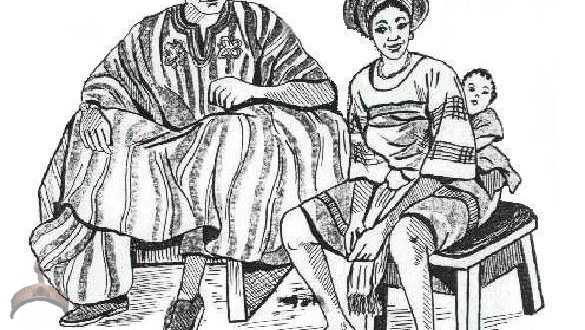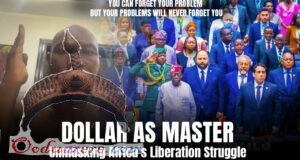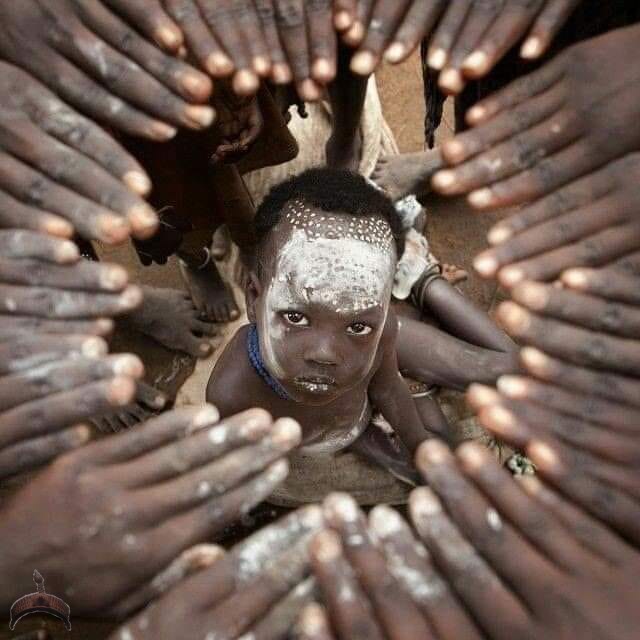Written by Akin Fagbo Aiyejin
Family occupies a pre-eminent place in the live of Yoruba; regardless, every Yoruba child is born into a home, which is a part of a compound or a clan. Family members always trace their descent to a common ancestor, and inheritance is patrilineal. Culturally, male children are favored, and because of the biological, and later, social role female children will play, they do not have inheritance from their birth-homes.
In any Yoruba home (monogamy/polygamy), family is made up of father, wife or wives as the case may be in a polygamous home and the children; and by extension, the extended family members from both the father and the mother sides.
The traditional roles of the father then and now have not changed, rather, have increased. In times past, fathers were to: provide shelter, food, and see to the general well-being of the entire family members, he consulted oracles and Ifa in times of trouble, and led other family members in every religious and ceremonies that have direct bearings on his family. Fathers or adult males, even as of today hold and keep collective families’ property such as (farmlands, and act as custodian of families’ traditional and religious birthright titles). In modern times, fathers perform these functions and do more; send their kids to school and render other socially/legally placed responsibility not known or not common in the ancient times.
Fathers represent and take decision on behalf of families on community matters.
In the ancient times, wives/mothers were always at home to take care of the children, supporting husbands in whatever ways possible. They served as advisers, counselors to husbands, represented husbands in absence, and served as moral guardians to their children. The older wives in homes trained the new ones, and in some cases, served as custodians of family values and traditions. Even as of today with western education, industrialization, Christianity and Islam which to a reasonable extent have changed and re-defined women’s status in today’s world; yet, they still perform these traditional functions as home-makers, in conjunction with their secular jobs.
Being an agnatic and communal-oriented society; family members live side-by-side, or near ancestral homes for the continuity of the extended family. The most senior/oldest male in the entire compound becomes family head (Mọgaji or Olori-Ẹbi), the position goes to another most senior, when the holder dies, or becomes incapacitated because of infirmity, due to old age and illness.
Traditional Yoruba homes before the arrival of Whites were rectangular-shaped-multi-single-rooms, with corridors and central compound, and open space at the back, where children played at night. The affluent Yoruba may have several of these homes to provide shelter needs for: wives, several children, family dependants, and slaves.
Those who had domestic animals like: goats, sheep, cattle, pigs, (fowl of different kinds), had low-built-pen-house.
Family head lived in the same house, but in a separate room; in a polygamous home, each wife had personal room, which she shared with her under-aged. Adult males shared same room, while females lived in the same room. Each wife took turn to sleep with her husband; even, in one-man-one wife home, couples lived under this arrangement. However, the introduction of Christianity which places so much emphasis on monogamy, plus the western education and culture, and improved standard of living-the outcome of-industrialization, these factors combined have changed the family outlook and dynamics among Yoruba people
Children are very prominent in all Yoruba families. A union that is blessed with the fruit of womb is appreciated, honored and valued, while a non-child-relationship is seen differently. In most cases, especially in the past, women always carried the blame for this problem and to reverse the condition, consultation with Ifa priest was not uncommon. The priest would tell the couple what should be done and when the situation was reversed sacrifices would be offered. However, if the woman in the union was permanently childless, a new wife would be provided to perpetuate the man’s lineage.
Although, most Yoruba family of today is monogamous, yet the place of children is still eminent as it was in the past. While orthodox medicine has significantly improved the standard of living Yoruba people with positive impacts on sexual reproduction and life expectancy; yet, a union without children is not cherished, but if the situation persists, other route may be sought, not through child adoption which is very unpopular; but, through another woman (second wife), should the wife be the problem.
But if the man is the problem, the union may be dis-solved.
Since Yoruba is an agnatic society, having a male child is a matter of necessity; there is always a tension in homes without male children or in polygamous homes between male-child-mothers and only-female-child-mothers. The tension, mostly cold-war often results in an open confrontation with serious consequences.
 Ọmọ Oòduà Naija Gist | News From Nigeria | Entertainment gist Nigeria|Networking|News.. Visit for Nigeria breaking news , Nigerian Movies , Naija music , Jobs In Nigeria , Naija News , Nollywood, Gist and more
Ọmọ Oòduà Naija Gist | News From Nigeria | Entertainment gist Nigeria|Networking|News.. Visit for Nigeria breaking news , Nigerian Movies , Naija music , Jobs In Nigeria , Naija News , Nollywood, Gist and more









